What if you could open a coffee or a tea room in a pharmacy? Or introduce organic food products? Sounds unbelievable? But it is possible! Admittedly, not in Poland, but in Taiwan! I Hsiu Hua, a resident of Taiwan, will tell us about such pharmacies, how cheap health insurance and easy access to doctors affect the health care system, as well as about many other interesting aspects related to pharmacy.

I Hsiu Hua graduated from the Faculty of Pharmacy at the Chia Nan University of Pharmacy and Science. Currently works in Smile Pharmacy in Taipei. The pharmacy in which he works primarily provides professional advice. It provides professional drug and health food consultations, and provides online consulting and shopping services. He also shares his knowledge and experience in social media (instagram name @pharma.hua_note).
As he is saying: running social media requires enthusiasm. So he spends his free time on thinking about how to run social media. For example, what interesting topics to cover, how to interact with fans, and how to market in the future. But this is something he enjoys doing and he will continue to do it in the future.
Fot. Larry Wu.
Joanna Bilek: Pharmacy in Poland is constantly changing. For several years, we have had a new law that allows only pharmacists to open pharmacies and limits their number in a given area. How is it in your country? Are pharmacies private or chain? Can only pharmacists or non-professionals be owners of pharmacies?
I HSIU HUA: In Taiwan, setting up a pharmacy can only be allowed by pharmacist so that pharmacist can provide the service of dispensing, supplying, buying and selling drugs legally. The government will not limit the setting up of pharmacies that is why there are more than 8,000 pharmacies in Taiwan, however, our population is just only 23 million. In that way, the density of pharmacies is very high.
JB: Are there many pharmaceutical departments in Taiwan? How is a Master of Pharmacy degree obtained?
IHH: Currently, pharmacy departments were established in nine universities. More than 900 students graduated and get license each year. There are some criteria to get a pharmacist license in Taiwan. First, we must graduate from the pharmacy department of a university. Secondly, we try hard to get the certification of pharmacist by passing a national exam.
Read also: With a friendly visit, for professional inspiration… Pharmacist in Australia
JB: What is studying in Taiwan like? In Poland, we have 5.5 years of studies, of which the last six months are an internship in a pharmacy. After five years of work, we automatically obtain the right to be a pharmacy manager.
IHH: Taiwan can be divided into the pharmacy system of B.S (Bachelor of Science in Pharmacy) and Pharma.D (A Doctor of Pharmacy). Bachelor of Science in Pharmacy takes five years, and a Doctor of Pharmacy takes six years. Pharma.D focuses more on the hospital’s clinical education, so it will have more time to enter the hospital for clinical practice. If you want to be a pharmacy manager in Taiwan, it need to accumulate two years of dispensing experience, whether in a hospital, pharmacy, or clinic. Thus, you can become a pharmacy manager and open a pharmacy. There is 'limitation of pharmacists’ number to avoid an imbalance between supply and demand in the job market.
JB: Can people with a professional title other than Master of Pharmacy work in Taiwanese pharmacies?
IHH: There are usually a small number of pharmacists in community pharmacy, therefore, Pharmacy Assistants are required. Pharmacy Assistants help pharmacists order, prepare and dispense medicines. Usually, a pharmacist will work with one or two Pharmacy Assistants
JB: Who can become a Pharmacy Assistant? I mean, do you need school or courses to become an assistant? What is the difference between a Master of Pharmacy and a Pharmacy Assistant?
IHH: Pharmacist Assistants do not need to attend any academic programs. However, it will be more helpful if you have a relevant background, such as the Department of Nursing or Nutrition, but this does not affect the salary and work content of Pharmacist Assistants.
JB: So anyone can come to the pharmacy when they want to work as a Pharmacy Assistant? Is there any training in pharmacy for persons who want to be Pharmacy Assistant?
IHH: There are no restrictions on becoming a Pharmacy Assistant. In pharmacies, both pharmacists and Pharmacy Assistants have a training system that allows inexperienced Pharmacy Assistants to quickly absorb knowledge of medications and health products. However, there is no official guide for this training system, and each pharmacy sets its own training rules.
JB: In Poland, in pharmacies we have drugs, a lot of dietary supplements, cosmetics and some medical supplies, but for example we do not have orthopedic prostheses like in France. French pharmacies also provide services such as the rental of medical equipment such as walkers, wheelchairs, crutches, anti-bedsore pillows, nebulizers and breast pumps. We do not have such a service in Poland. What is the assortment of pharmacies in Taiwan? Are there any other products besides drugs, supplements, medical supplies?
IHH: In Taiwan, pharmacies also provide many over the counter (OTC) drugs, dietary supplements, cosmetics, and medical supplies, therefore, there are different types of service provided by pharmacies. The variety of medical equipment they provided according to the scale of pharmacy. For example, some pharmacies specialize in medical equipment, providing more complete and various medical equipment items, including crutches, wheelchairs, and walkers. Furthermore, some pharmacies also provide rental services. In addition, the government provides subsidies for assistive devices for elderly or the disabled. Some pharmacies are specialized in maternal and child health, and sell many brands of baby milk powder, diapers, and baby products. Some pharmacies take the refined style, and there is a coffee shop in the pharmacy where customers can taste coffee. Some pharmacies take the organic style, selling a variety of vegetables, fruits, and fresh seafood and meat like supermarkets. Recently, more and more pharmacies provide traditional Chinese medicine. In the past, the impression of pharmacies was main Western medicine in Taiwan, and Chinese medicine tends to go to traditional Chinese medicine shops. Because of the COVID-19 epidemic, the effect of traditional Chinese medicine has become more and more important to people. Therefore, many pharmacies have also set up Chinese medicine counters, providing service for customers who need Chinese medicine.
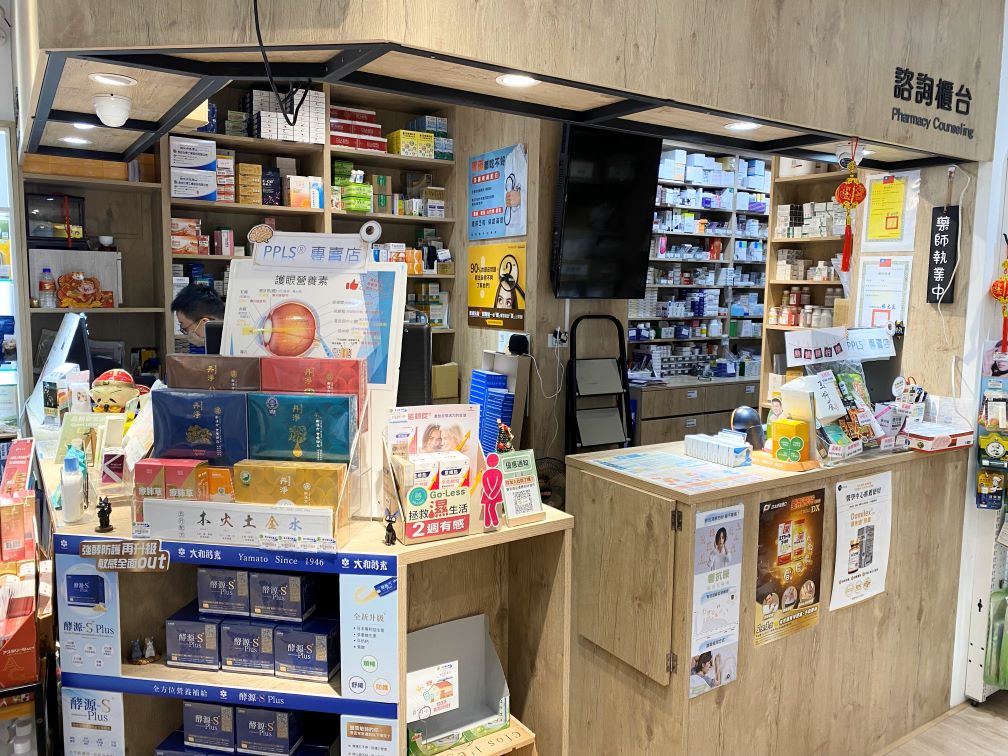
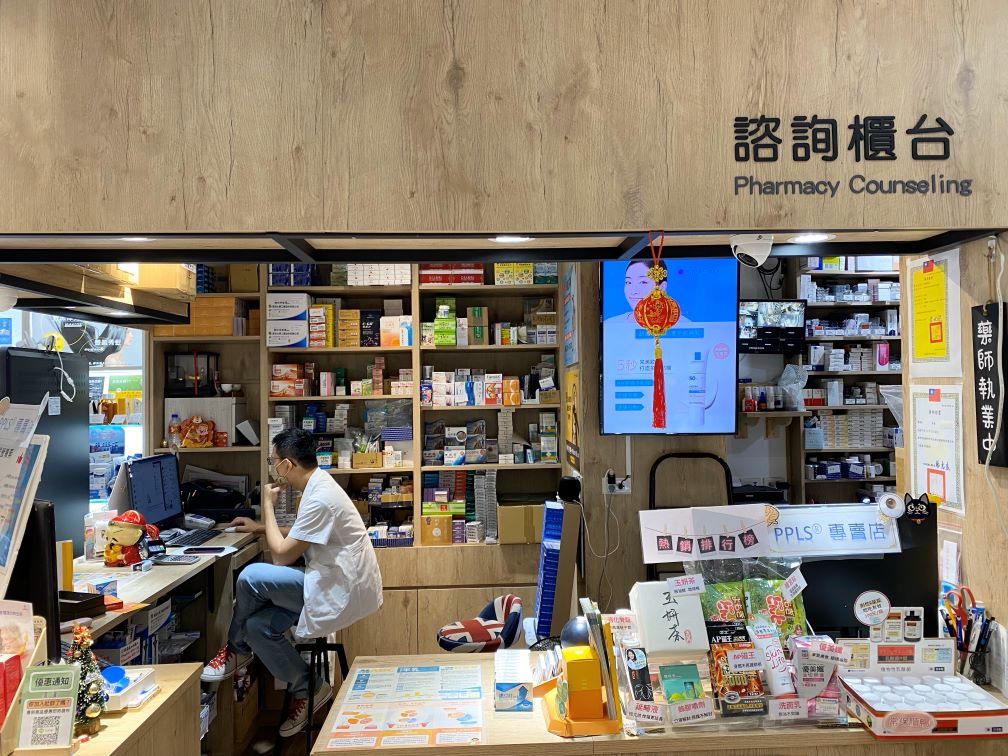
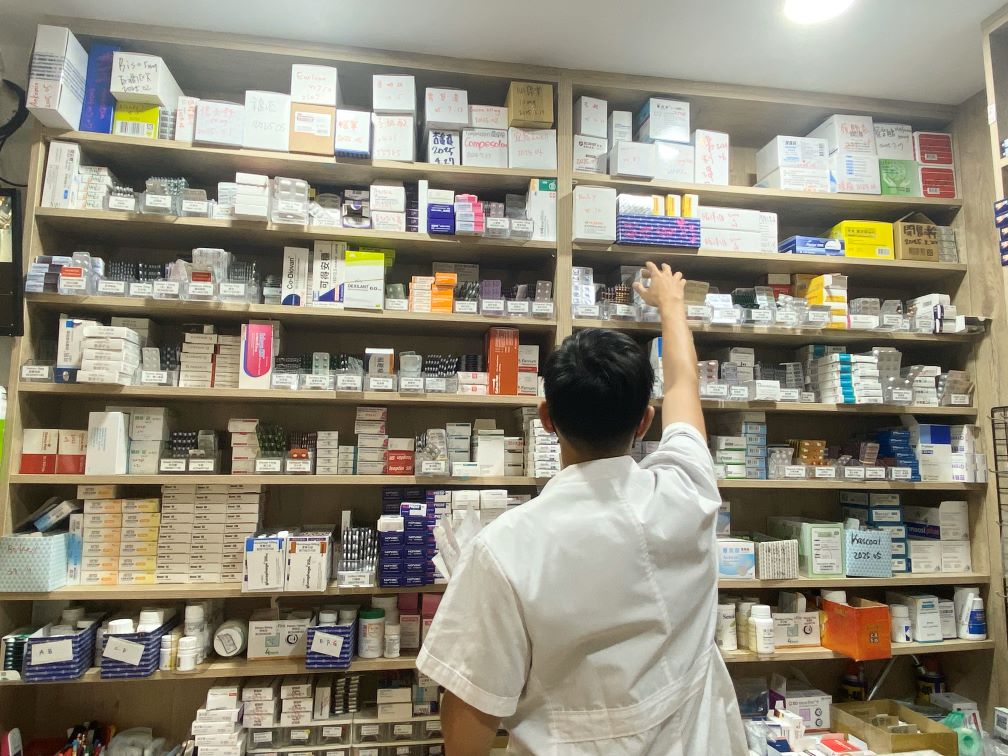
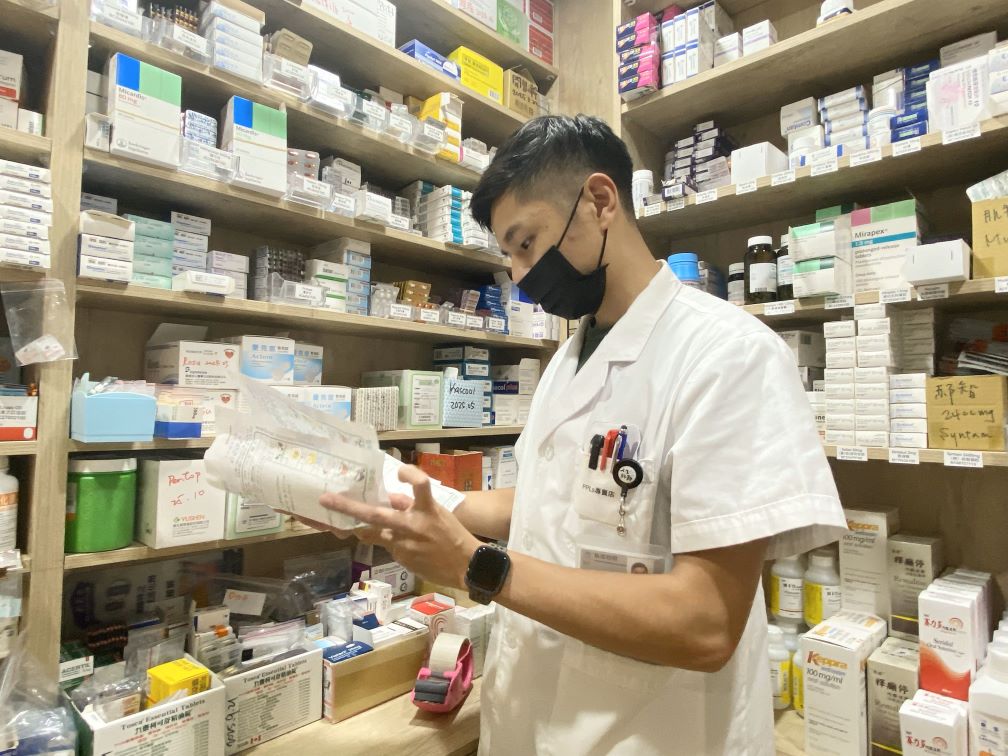
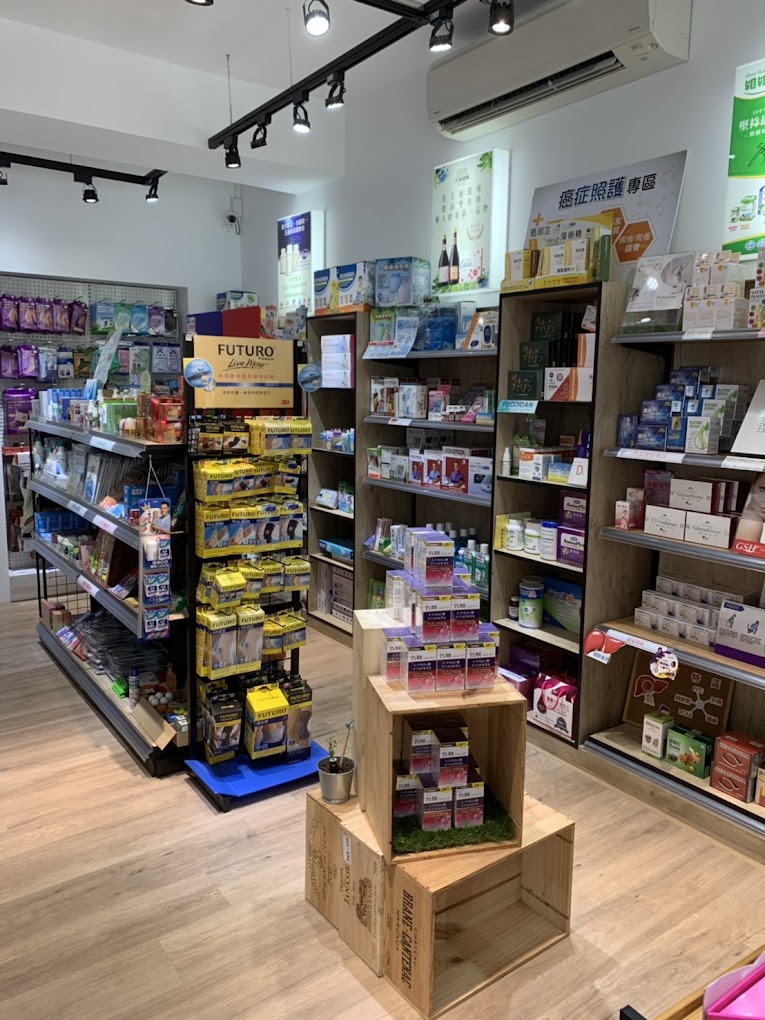
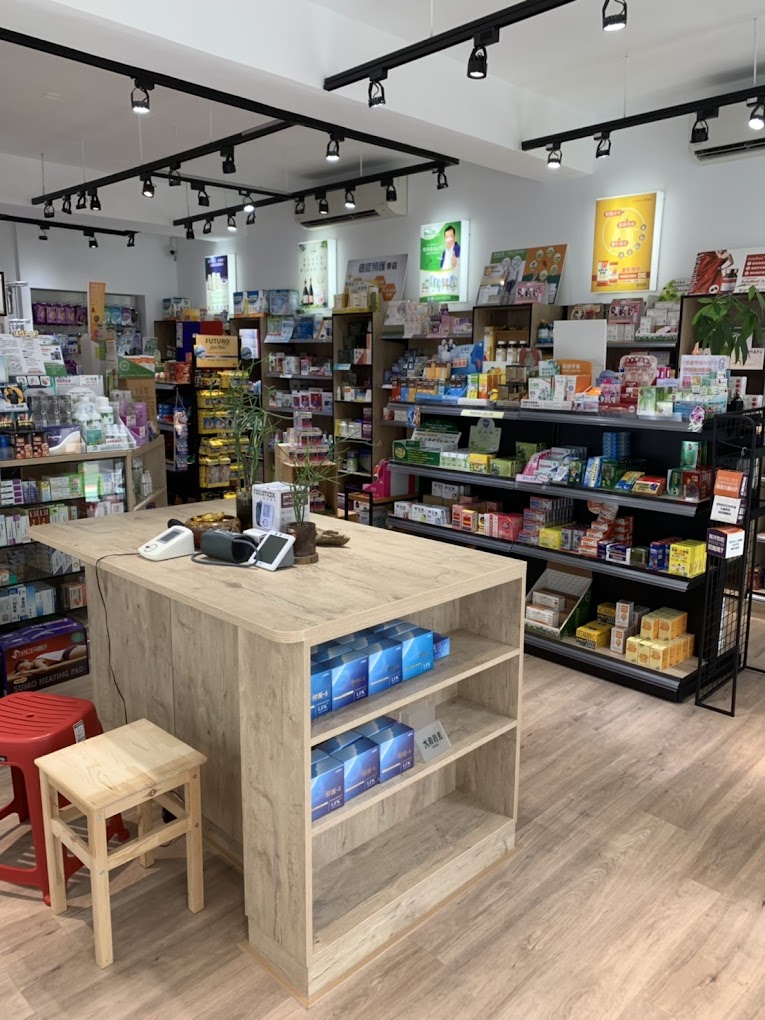
JB: Do you have TCM classes in pharmaceutical studies or do additional courses if you want to become TCM specialists?
IHH: For pharmacy education in Taiwan, universities will have a credit course in Chinese medicine. If you are interested in Chinese medicine, you can choose a job related to Chinese medicine. Due to the shortcomings of Taiwan’s health insurance system, there are relatively few pharmacists who are engaged in Chinese medicine after graduation.
JB: How is it with payment for drugs? Are they fully or partially reimbursed? In Poland, we have various types of payment for drugs, but from a previous conversation with a French pharmacist, I learned that in France, patients do not pay for drugs, if they have health insurance, of course.
IHH: Taiwan’s national health insurance is compulsory insurance, so everyone in Taiwan has medical insurance. Therefore, most of the expenses for medical treatment are covered by insurance. For example, if you go to a clinic, you only need to pay the registration fee and copayment fee (up to 200NT). If a patient with chronic disease goes for a doctor, they will have copayment exemptions. You can take the prescription and decide to pick up the medicine at the hospital or community pharmacy, and there is also no extra charge for getting the medicine. The government will provide pharmacists with pharmacy service fees. The pharmacy service fees will be paid depending on different type of prescriptions. For example, the payment amounts for general prescriptions and refillable prescriptions for chronic diseases are not the same. Unless the doctors prescribe self-paid medicines, the patient will be asked to pay for it. The reason may be the medicines are not included in Taiwan’s health insurance, or the patient does not meet the conditions of health insurance payment, but the situation is rare.
JB: Since the coronavirus pandemic, we can perform vaccinations in Polish pharmacies. Can Taiwanese pharmacists also do them?
IHH: Although pharmacists in Taiwan cannot give a shot for patients, we provide other services such as helping elders who do not know how to operate the vaccine appointment system.
JB: Whether Taiwanese pharmacists had any additional tasks during the pandemic?
IHH: With the outbreak of COVID-19, public demand surged for personal protective equipment, such as surgical masks. To overcome a shortage of surgical masks, the Taiwanese government imposed a ban on the export of surgical masks and requisitioned all domestically produced masks to ensure the supplement of masks.
In early February 2020, the government implemented a rationing system for distributing surgical masks to prevent panic buying. With the NHI-integrated information systems, open tracking system for mask availability and online service platform for purchasing surgical masks, people can buy surgical masks and rapid tests easily with low prices in community pharmacy. In that way, the overcrowding in pharmacies and the risk of virus transmission would be relieved.
JB: What about treatments for coronavirus? Was the introduction of new drugs associated with additional responsibilities?
IHH: After the application of the antiviral drug, such as Paxlovid, patients with COVID-19 infection can get electronic prescriptions through telemedicine, and ask their family and friends to take Paxlovid at the pharmacy. To keep patient’s medicationsafety, pharmacists have to give the instruction by checking patient’s renal function status and drug-drug interaction through the cloud medical records of health insurance. Also some pharmacies provide medicine delivery services for those living in the remote area.
JB: Are the use of other medicines also monitored in this way? I mean drug interactions.
IHH: Well, the cloud medical record will have the patient’s medication history, and the system will warn. However, in clinical practice, we still have to communicate with patients based on their actual medication conditions and giving appropriate medical education. In addition, we will print a paxlovid drug interaction form by ourselves. In addition to the system prompts, we also need to keep this important information in our minds. Otherwise, when the patient calls from home to inquire, there will be no reminder from the cloud drug record at this time, and the pharmacist must also know the drug interaction and disposal method.
JB: Are compounded drugs popular in Taiwan? In Poland prescription compounded drugs are less and less. But for exemple in Germany, compounded medications are very popular and many pharmacies make them. German compounding pharmacies are very well equipped, for example-they have spectrophotometers for testing the quality control raw materials for compounding.
IHH: Almost never heard of compound drugs in Taiwan
JB: What does your work day in the pharmacy look like?
IHH: The work hours of pharmacies in Taiwan are very long. It usually ranged from 8 or 9 am to 9 or 10 pm on average. Pharmacists and pharmacy assistants will perform their own duties. Generally speaking, the refillable prescription is the priority. Pharmacist will contact patient to take their refillable prescription. Then, we should assist customers or introduce products. In addition, we also prepare and dispense medicines, put products on the shelves.
JB: In Poland, some medications, such as painkillers (some OTC drugs) can also be purchased outside pharmacies, e.g. in grocery stores. How is it in your country?
IHH: In Taiwan, drugs are divided into prescription drugs and non-prescription drugs or we- called over-the-counter drugs (OTC). Prescription drugs require a doctor’s prescription and cannot be purchased by themselves. Non-prescription drugs can be divided into two classes. The one class is the drugs that need to be sold after the guidance of a pharmacist, such as most painkillers. And the other class can be purchased at convenience stores by themselves, such as green oil essence.
JB: What is “green oil essence”?
IHH: Green oil is a traditional oil in Taiwan. It can be applied directly on the skin, and it has the effect of refreshing and relieving itching. Its ingredients are composed of Methyl salicylate, Menthol, and Camphor.
JB: I am a fan of herbal medicine. Every year in Poland there are fewer and fewer herbal drugs, they are replaced by dietary supplements. Sometimes, when I need herbal medicinal products for myself and it is not available in Poland, I order from Germany because herbal medicinal products are very popular there. Are herbal medicinal products popular in Taiwan?
IHH: Because Taiwan is near China, which is the origin of traditional Chinese medicine, we are deeply influenced by the culture of traditional Chinese medicine. Most people in Taiwan have taken traditional Chinese medicine since childhood. It is very interesting that this COVID-19 epidemic has made Chinese medicine culture become popular again. Taiwan has developed a traditional Chinese medicine called Qingguan No. 1(NRICM101), which is composed of a variety of medicinal materials.
JB: Is Qingguan No. 1 a drug prescribed by doctors, what are its indications? Is it popular in your country?
IHH: Based on the result of clinical trials, Qingguan No. 1 may be helpful to prevent patients with COVID-19 infection from progression. Before antiviral drugs such as Paxlovid launch, many people who are diagnosed with COVID-19 will choose Qingguan No. 1 to suppress the virus replication and avoid the exacerbation. Even if antiviral drugs are now available, most Taiwanese will still choose Qingguan No. 1 when they are diagnosed. However, Qingguan No. 1 is a medicine that should be prescribed by a Chinese medicine doctor and can only be obtained by Chinese medicine practitioners.
JB: It’s very interesting! I have never heard of this drug before. Do you know its composition or is it a secret recipe?
IHH: The abbreviation of Qingguan No. 1 is called NRICM101, and its main functions (according to TCM) are: to release the exterior and diffuse the lung, clear heat and detoxicate, soothe the chest to dispel phlegm, harmonize the stomach and downward. The medicinal materials are Herba Houttuyniae, Radix Isatidis, Radix Scutellariae. Fructus Trichosanthis, Herba Schizonepetae, Folium Mori, Herba Menthae, Cortex Magnoliae officinails, Radix Saposhnikoviae, Radix et Rhizoma Glycyrrhizae praseparate cum melle.
JB: Do you have problems with the availability of drugs on the market? In Poland, it is becoming more and more severe-for example, some antibiotics, medications for asthma, and morphine are in shortage.
IHH: Due to the low price of medicine, the foreign pharmaceutical companies made the decision to withdraw from the Taiwanese market in recent years. More than 70 percent of the medications funded by the National Health Insurance (NHI) are generic drugs. Although the generic drugs demonstrate bioequivalence, which means that a generic medicine works in the same way and provides the same clinical benefit as the brand-name medicine, most of the doctors and patients in Taiwan still prefer to use the brand drug.
For example, the famous opioid painkiller Ultracet withdrew from Taiwan last year. Currently, physicians can use generic drugs to replace most brand drugs withdrawn from Taiwan, however, it is still a great loss for medical care if the situation is persistent.
JB: And what about generic drugs- there are no problems with their availability?
IHH: Most of the raw materials or ingredients of generic drugs come from mainland China or Southeast Asia, which could be influenced by COVID-19 epidemic, causing the unstable supplement.
JB: How do the health care system, preventive health care, as well as the access to doctors and other health care professionals look like in Taiwan? What is the state contribution to the cost of health services, prophylaxis, etc.? In such a modern country it is probably at a very high level.
IHH: Taiwan launched a single-payer National Health Insurance program on March 1, 1995. As of 2014, 99.9% of Taiwan’s population were enrolled. Furthermore, the density of hospitals and clinics is high in Taiwan. Due to greater patient choice, easy access, and low medical cost burden, unnecessary healthcare-seeking behavior is common.
JB: Doesn’t that upset the balance in the functioning of the healthcare system?
IHH: Yes, the unnecessary healthcare-seeking behavior also leads to a waste of medical resources. People tend to go to medical centers even for minor ailments, causing overcrowded emergency rooms. This chaos has a great impact on people who really need medical therapy.
JB: And what is the structure of medical care? Do you have private doctors?
IHH: Nowadays, Taiwan’s current healthcare system is divided into four levels: Medical centers, regional hospitals, district hospitals, and clinics. The government promotes the medical referral system and hierarchical medical system to reduce outpatient visits to large-scale hospitals.In Taiwan, private doctors are more like clinic doctors. You can find a trusted clinic near your home, and you can go to the clinic for any medical problems.
JB: What is the difference between a medical center and clinic?
IHH: There are different levels of hospitals in Taiwan, and the medical center is the hospital with the most medical resources. Clinics are opened by doctors themselves and provide medical services according to the doctor’s discipline. Examples include dental clinics, dermatology clinics, eye clinics, and more.
JB: Do pharmacists only work in public pharmacies? Are they satisfied with their job and position?
IHH: In Taiwan, pharmacists can work in public pharmacies and medical centers. Pharmacist in medical center is too busy to give patient education or detailed information. Patient should go to the counselling counter for further help if they need it. Therefore, doctor are far more important than pharmacists in hospital.
In community pharmacies, unlike hospitals where people who receive medicines have to queue up, they have more time to educate patients in detail, such as asking about past medical history, family status, and living habits. Because they have more time, they can perform pharmaceutical care, which is why many pharmacists choose to work in community pharmacies.
JB: Are pharmacists satisfied with their salaries?
IHH: The salaries of Taiwanese pharmacists are stable. Paying a raise is limited. Unless you set up a pharmacy by yourself, it is impossible to break through the salary ceiling for pharmacists. Most community pharmacies in Taiwan are franchise businesses, and the consortium has a large amount of funds to set up pharmacies extensively, which will affect the individual pharmacies. I think it is the same challenge all over the world.
JB: What is the salary for Masters of Pharmacy and what is it for Pharmacy Assistants?
IHH: Masters of Pharmacy earn 60000- 80000NT and Pharmacy Assistant earn 30000-40000 NT.
JB: Do pharmacists work in other places besides pharmacies? What is it like after pharmaceutical studies- what jobs are most often chosen? When I was finishing my studies- most masters decided to work in a pharmacy, current students declare that they prefer to work in pharmaceutical companies.
IHH: In Taiwan, pharmacists usually work in hospitals, pharmacies, and pharmaceutical factories, and a few enter government agencies. Currently, most pharmacists work in hospitals and pharmacies. Foreign well-known companies Astra Zeneca, Beilingjia, Novo Nordisk, Pfizer, because of its higher salary, many people will aim for foreign pharmaceutical factories. Of course, some pharmacists will also develop their own sideline business, such as the famous drink shop in Tainan, pharmacist Tea House, which is opened by the pharmacist. Nowadays, the development of the internet industry is booming, and many medical staff are gradually developing towards the internet and managing their own social media, which is helpful for any business in the future.(Like me lol)
JB: Are the patients and pharmacists satisfied with healthcare or do they have any expectations?
IHH: National health insurance and medical system in Taiwan are often widely reported and admired by foreign countries. In fact, too low health insurance premiums will lead to a gradual decline in the quality of medical care. For example, many brand drugs are gradually withdrawn from Taiwan because they cannot afford the low health insurance prices. Pharmacists are unable to support the revenue of a pharmacy due to the low health insurance benefits for dispensing drugs. They need to provide additional services with economic value, such as selling a variety of products.
JB: How are life and work in Taiwan for you? Are you satisfied?
IHH: At present, I am very satisfied with my work and life, most of which come from the sense of accomplishment in my career. I am now a pharmacist working in a community pharmacy. In general, my work life is similar to those pharmacists working in a Taiwan pharmacy. The training program that is different from other pharmacies is the clinical use of nutritional supplement and health supplement. I have learned a lot from this program. The new knowledge of health supplements makes me very interested in these nutrients. So I created a fan page on instagram to share the daily work in the community pharmacy and the new knowledge of health supplements. In my spare time, I spend most of my time on social media, such as thinking about copywriting, reading professional literature, interacting with fans and so on.
I try my best to become a unique pharmacist who has medical knowledge, marketing ability and social skills. Even though every day is filled with work, I still try to strike a balance between work and play.
Thank you very much Hua for valuable information about Taiwanese pharmacy and health care! It was an amazing conversation! We wish you an eternal passion for pharmacy and many successes in gaining new followers on social media!
Below you can find links to the most interesting pharmacies in Taiwan:



![Porozmawiajmy o… medycznej marihuanie [WYWIAD]](https://www.aptekarzpolski.pl/wp-content/uploads/2024/04/wywiad-medyczna-marihuana-360x180.jpg)
![O systemie leczenia chorych na hemofilię [WYWIAD]](https://www.aptekarzpolski.pl/wp-content/uploads/2023/04/Z-perspektywy-pacjenta-hemofilia-75x75.png)






